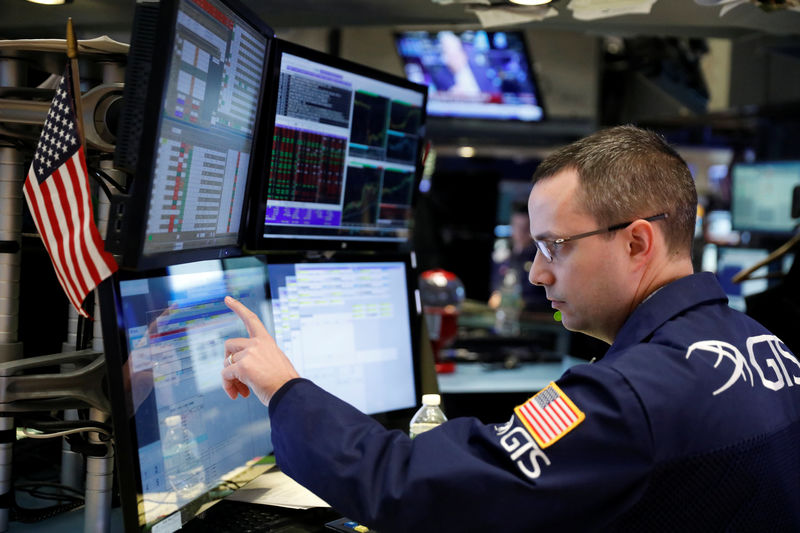(Reuters) - U.S. financial stocks rose on Monday, breaking above a trading range they were stuck in since early December, as investors bet that policy changes favoring the financial sector would be implemented under the Republican administration.
Financial stocks (SPSY), with a 1.2 percent increase, were the biggest boost for a rising S&P 500 index (SPX). S&P's bank subsector <.SPXBK> rose 1.3 percent, with JP Morgan Chase & Co (N:JPM) and Citigroup Inc (N:C) its biggest drivers with 1.5 percent and 2.3 percent moves, respectively.
The Financial Select Sector SPDR fund (P:XLF) was up 1.2 percent. It had risen 21.6 percent between Nov. 4 and Dec. 8 but the exchange traded fund (ETF) then traded sideways around $23 until Monday when it traded above $24 for the first time since February 2008.
"This could trade up to the $25 to $25.50 range before it pauses," said Bruce Zaro, chief technical strategist, Bolton Global Asset Management in Boston, adding that "the next stop is in the $30 range where it was before the (financial sector) meltdown."
The S&P bank subsector <.SPXBK> rose 24.8 percent between the election and Dec. 9 as investors bet that a Donald Trump presidency would mean lower taxes, lighter regulation and stimulus spending, factors that along with rising interest rates would boost bank stocks.
The rally stalled after Dec. 9 however and the sector traded sideways until Monday as investors were wary of piling more money on without evidence that campaign promises would become actual policy under Trump, who took office Jan. 20.
Last Thursday President Trump promised a "phenomenal" tax plan without giving details. Then on Friday Daniel Tarullo, the Federal Reserve Board's top bank regulator, said he would step down.
Investors may be betting Tarullo will be replaced by a regulator who is "friendlier to the banking industry," said Lisa Welch, portfolio manager for a John Hancock Regional Bank fund at Manulife Asset Management in Boston.
On top of this investors were relieved by the President's meeting with the leaders of key trading partners Japan and Canada, according to Marc Pado, president at DowBull.com in San Francisco, who noted that 9 weeks of sideways trading brought MACD (moving average convergence/divergence) and stochastic technical indicators back to neutral.

"Trump was able to maintain a non-Trumpian civil tone towards trade. That bodes well for trade with two of our trading partners that things didn't explode," said Pado, adding that the financial stocks also needed the "backing of a good technical pattern."